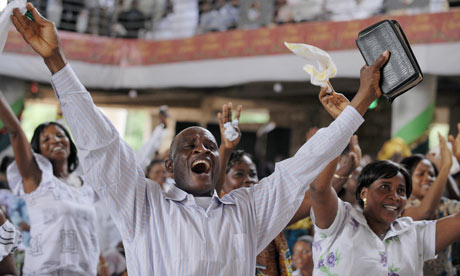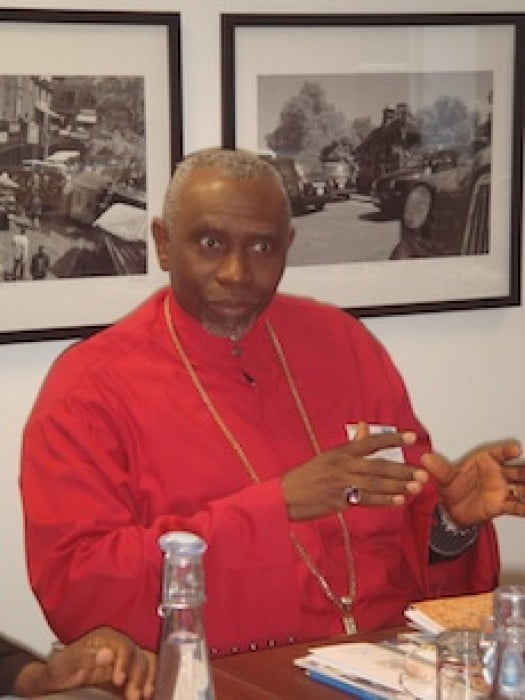MAIDUGURI — Six persons were, yesterday, feared dead as four major explosions rocked Maiduguri, the Borno State capital.
This came as nine governors in the All Progressive Congress, APC, gathered in the troubled city to push the merger plans of the country’s leading opposition political parties.
Several others were injured in the explosions and are receiving treatment.
The governors in a communiqué vowed that they would rescue Nigeria from what they described as a visionless leadership.
The explosions occurred simultaneously on Baga road, Customs and Gamboru areas at about 3p.m, while a fourth exploded at London Ciki at about 6p.m.
A top security source regretted the incident, claiming that the state administration may have triggered the incident through the invitation of the APC governors to the state as he said intelligence reports had advised against the meeting.
Six feared dead
An unconfirmed report from a hospital source said six dead bodies including security operatives and civilians were brought to the mortuary of the University of Maiduguri Teaching Hospital, while those who sustained injuries were admitted for treatment.
The Commissioner of Police, Mr. Yuguda Abdullahi, however, claimed knowledge of only one blast, saying he personally visited that site. He declined comment on the number of casualties.
Spokesman of the Joint Task Force, JTF Lieutenant Colonel Sagir Musa could not be reached for comments.
The governors were, nevertheless, undeterred in pledging their solidarity with the people of BornoState and together donated N200 million to Borno and YobeStates, the two opposition party held states that are at the centre of the Boko Haram insurgency.
Jonathan to visit Borno
Meantime, the bond of solidarity from the APC governors is coming ahead of the expected visit of President Goodluck Jonathan to the troubled city. The president who has not visited Borno State since the insurgency got to troubling levels is expected to visit the state within the next two weeks.
Eight governors and one deputy governor from the four parties forming the APC were present at yesterday’s strategic meeting that lasted about four hours. It was reportedly focussed on how to properly position the emerging party in the polity.
Roll call
Present at the meeting were Governors Rochas Okorocha (APGA Imo), Kayode Fayemi (ACN Ekiti), Babatunde Fashola (ACN Lagos), Umaru Tanko Al-Makura (CPC Nasarawa), Ibikunle Amosun (ACN Ogun).
Also present were Governor Rauf Aregbesola (ACN Osun), Deputy Governor of Yobe, Abubakar Aliyu (ANPP), and the host,Governor Kashim Shettima. Governors Abiola Ajimobi of Oyo and Abdulaziz Yari of Zamfara were among the opposition party governors absent at the meeting. They, however, sent messages of solidarity.
…donate N200m to Borno, Yobe
Reading a communiqué to newsmen after the meeting, Governor Aregbesola said the APC governors had collectively donated N200 million to Borno and Yobe State governments for emergency relief and support in the light of the Boko Haram insurgency affecting the two states.
Despite the explosions of yesterday, the APC governors also noted the relative lull in the insurgency in Maiduguri and, therefore, offered solidarity to the governments and people of Borno and Yobe states.
The communiqué
“The Forum reiterated our irrevocable commitment to the emergence of the new party, All Progressive Congress (APC).
“In solidarity with the government and people of Borno and Yobe states, we are pleased to witness an upsurge of tranquility and happy that the situation has calmed down considerably in Maiduguri, contrary to the image of rampant violence that has been painted to the whole world. We have discovered the people are going about their businesses without hindrance. We wish to commend the efforts of our brother-governors in the two states and the security agencies for the restoration of peace and stability.
“We also sympathize with the families of those who lost their lives and property and wish to donate N200 million to Borno and Yobe governments for emergency relief and support.
“We wish to commend the Central Merger Committee of the APC on the progress so far made in the establishment of the new party, particularly the recent inauguration of three major committees on constitution, manifesto and legal/INEC compliance.
“Finally, we wish to inform Nigerians that we shall soon embark on a national outreach and sensitization activities and we call on Nigerians to support our effort to rescue the country from a visionless leadership.”
IBB backs merger of political parties
Meanwhile, former military president, General Ibrahim Babangida (rtd) has said that the merger of some political parties was a welcome development in our political system as it would serve as a strong opposition to the ruling Peoples Democratic Party, PDP.
Answering questions from newsmen at his hill top mansion, Minna, Niger State, the former military president said as a strong advocate of two political parties for the country, the emerging scenario would surely vindicate him on his stand for two political party system which he said was the only way out for the country politically.
Two-party system best for the country
He said: “I have been a very good advocate of two party system for the country since I was the president. When I said we need only two parties some years back, they said I am a soldier and I should shut up but now, many are seeing relevance in my agitation.
“I am happy with the merger talk that is going on. It is a welcome political development in our political experience and if it succeeds, it will surely vindicate me and move the country on politically.”
The former military president who took a swipe at the nation’s political leadership so far said most politicians in the country were concerned about the votes they garnered from the electorate during elections but have failed to serve them more appropriately after wining the elections.
...berates political leadership
He noted: “It is unfortunate that the political elite have failed to enlighten the ordinary man and carry them along. Nobody is talking about educating the ordinary man because they are only interested in their votes and soon forget them after getting to power.
“The only thing we are busy doing is wasting our energy in fighting over who becomes the chairman of this or that and until we carry the people along and serve them diligently, we will have a long way to go in this country.”
On whether he was comfortable with the comments of former American president, Bill Clinton, accusing the Federal Government of mismanaging the country’s resources, the former president said it was what the foreigners read from the home-based journalists that they rely and comment on.
“You don’t need a foreigner to tell you this. You write it yourself and they read it and so, what is the problem with the comment. I am comfortable with the comment,” Babangida said.































